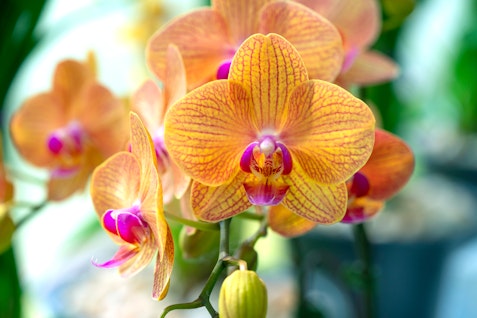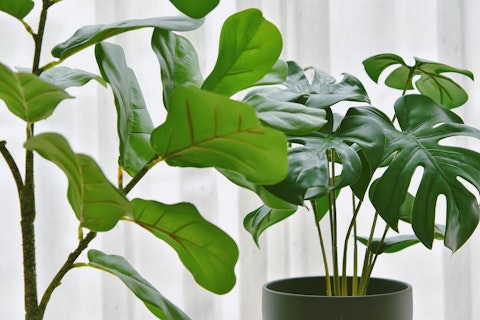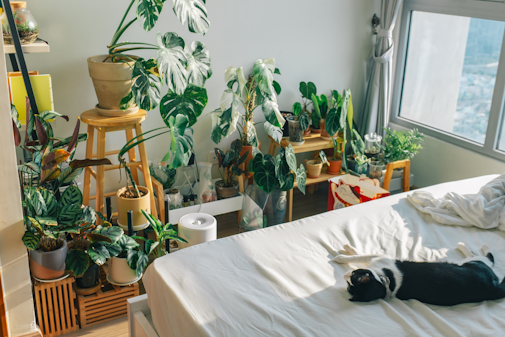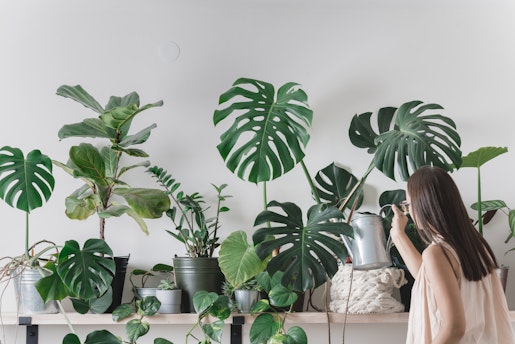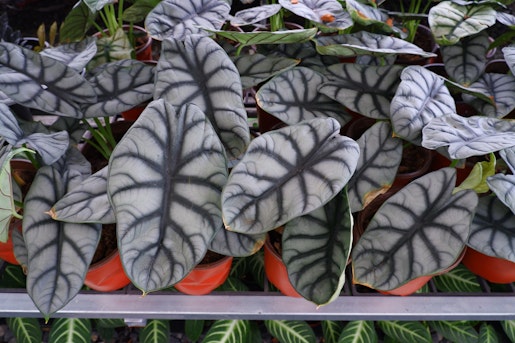
- Home
- The Ultimate Guide to Office Plants
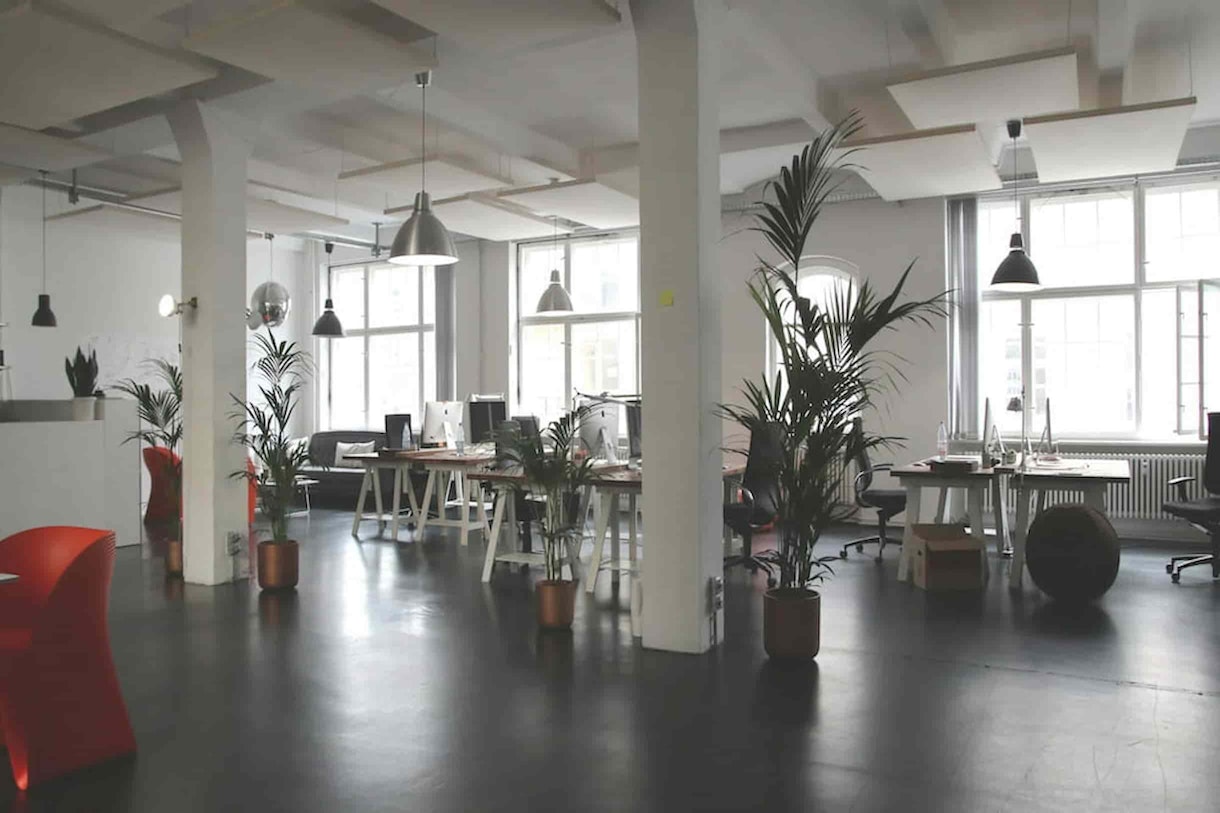
In this age of complex technology, it's easy to forget about nature. However, in the 21st century, people have developed an interest in bringing nature back into the greys of urban development.
Plants could have a range of benefits for offices - they can improve mental health, boost productivity, and create calming spaces for people to work in. Read on for our ultimate guide to office plants.
The Benefit of Plants in Your Office
There are many benefits to keeping indoor plants in your office space. Unfortunately, the notion that plants improve the air quality in your office space is a myth, developed from a misunderstood NASA study in the late 20th century, which you can read about in-depth here. The benefits of plants are still numerous and backed up by peer-reviewed psychological studies.
Healthier Employees
It has been proven that being surrounded by nature improves our physical health. Something about our instinctive drives - existent long before our affiliation with bricks and boardrooms - means that being surrounded by foliage and greenery slows our heart rate, and reduces our blood pressure and helps us to recover from mental fatigue quicker, reducing stress and anxiety!
Improves Productivity
Plants have been shown to increase productivity, increase memory retention and concentration while reducing restlessness. A study tested students and employees with a view of nature versus students and employees who didn’t.
The results revealed that those with a view of nature had heightened focus, were more productive and were happier and more relaxed than those without. Further, people with attention deficit disorders were shown to have decreased restlessness and improved concentration, as well as greater creativity, with just a single, short exposure to nature per day.
Increases Happiness
Plants have been shown to improve happiness. There are several studies that demonstrate the improved psychological health of people who interact with aspects of nature, resulting in greater feelings of hopefulness, positivity, and creativity and aiding in feelings of comfort and relaxation.
Positive Impact On Wellbeing
Numerous studies imply that plants contribute to better self-esteem and mood, while also reducing symptoms of depression, stress and anxiety. While plants are by no means a solution to cognitive and emotional health issues, they certainly create an atmosphere of calm and peace that can help in the reduction of various anxieties that are created in the bustle of everyday life.
Small Desk Plants
Small desk plants are a great addition to any workspace. Not only do they add a touch of nature and colour to your desk, but they also have numerous benefits for your well-being and productivity. Studies have shown that having plants in your work environment can help reduce stress and increase creativity.
Plus, with their compact size, they are perfect for small desk spaces. From succulents to mini cacti, there are endless options for small desk plants that require minimal maintenance. Further, they can add a personal touch to your office, allowing employees to engage with their own aspect of nature each and every day. So why not spruce up your workspace with a little greenery and reap the benefits of these small but mighty desk plants?
Large Office Plants
Large office plants are a great addition to any workspace, not only for their aesthetic appeal but also for their numerous benefits. These plants not only add a touch of greenery to a sterile office environment, they can also reduce stress levels and boost productivity, making them a valuable asset in any office setting.
With various sizes, shapes, and types to choose from, incorporating large office plants into your workspace is an easy and effective way to create a more pleasant and healthy work environment for employees.
Which Plants Do Well in an Office with No Windows or Reduced Light?
Unfortunately, there is no plant that will do well in an office with no bright or direct light source. Having a plant with no natural light can lead to rot, mould growth and waterlogged soil, and can even introduce infestations of pests and foul odours into your space.
However, don’t hang up those indoor gardening gloves just yet, because there is an increasing number of light solutions being developed and sold every week! Lots of grow lights are affordable and have low running costs, and plant-productive light can be sourced from a lot of standard, full-spectrum LEDs too! We have discussed this in-depth here, including a review of various products in terms of their quality, running costs and price!
For low-light spaces, there are a large number of plants that can grow happily and maintain their health. Below is a short list of a few of the plants that are good for low-light spaces:
Aglaonema: Aglaonemas are terrestrial plants that come in a variety of sizes, patterns and colours, and grow reliably under low light conditions. They can add an exciting splash of colour to any space!
Epipremnum: Epipremnum are a trailing or climbing plant with lots of beautiful, heart-shaped foliage. There are multiple cultivars in a variety of colours and patterns. They can be placed on top of structures and furniture to trail over, installed as large feature plants bound to moss and coir poles and can even be used as carpeting plants in a trough or large planter installations. Easily the most versatile and reliable indoor plant!
Philodendron: Philodendron is a genus of plant with huge diversity, but similar care. There are a number of philodendrons with heart-shaped leaves, long thin leaves, round leaves, saw-edged leaves, angular leaves, fenestrated leaves and more! They come in a variety of sizes, shapes, styles and colours and really do add incredible variety to any biophilic design.
Sansevieria: Sansevieria is a genus of plant that grows in shaded, dry areas, making the plant ideal for low-light or non-bright, indirect light office spaces! They have long, pointed, vertical leaves and are often a variety of patterns and colours, adding a unique flair to any space they’re in!
Dracaena: Dracaena are a diverse group of plants that often grow grassy foliage atop a long woody stem, giving an office space a tropical feel without the need for intense levels of light and with minimal care!
FAQS:
What is the best plant to have in an office?
The best plants for an office are hardy plants with low maintenance that still provide colour, a variety of shapes and styles and bring nature into your space. The best plants in our opinion are: Monstera, Ficus, Philodendron, Epipremnum, Aglaonema, Hoya, Dracaena, Sansevieria, Strelizia and Maranta.
Which plant is best for an office desk?
A plant for a desk is conditional, based on the level of light that that desk receives. For a low light desk, small Sansevieria and Philodendron are recommended, for desks with better quality of light, cacti and succulents do not go unnoticed!
What is a calming plant for the office?
Truthfully, any plant is good for creating an atmosphere of calm. Studies show that natural environments are what help create calming spaces, so large plants with lots of foliage, or numerous medium-sized plants will help achieve this the best. Try Strelitzia, Monstera, Philodendron and Epipremnum!
Which plant removes stress and anxiety?
Much like the previous answer, the best solution to reducing stress and anxiety in a workspace is with lots of natural greenery. Epipremnum, Philodendron, Strelitzia and Monstera are a good solution, but the keeping of personal plants can help with time management and regulation, so having a small succulent, cactus or sansevieria on a desk can benefit also!
Jonathan Davies
Jonny has worked at Root since May 2023. His love for plants was inherited initially from his grandparents and parents, but really took off once he moved into his own place, where he started picking up small plants and was fascinated by watching how they grow and change over time. Jonny has a degree in Archaeology and Classics from the University of Sheffield, and a masters in Egyptology from Swansea University, where he primarily focused on garden culture in the ancient world, which he has managed to extend to a PhD thesis in the University of Liverpool, where he has been able to combine his love for plants with his love for ancient language and culture. Jonny loves being in the natural spaces around North Wales and Cheshire where he used to go growing up, and often spends hours examining the plants and trees, and kicking up the leaf litter searching for mushrooms and insects. He is fascinated most by plant biology, taxonomy and learning about ecosystems and interactions between plants and their environmental counterparts, and enjoys tending to his varied array of houseplants, and ongoing ‘plant projects’, such as growing plants from seeds and creating living epiphyte displays. Aside from his green thumb, his other interests include: art, reading, listening to and playing music in the company of his cats, Spooky and Boo.
More by Jonathan DaviesRelated Articles
View all articles
